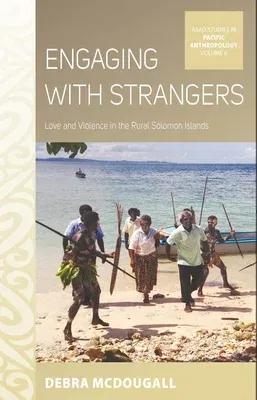Debra McDougall
(Author)Engaging with Strangers: Love and Violence in the Rural Solomon IslandsPaperback, 12 February 2020

Qty
1
Turbo
Ships in 2 - 3 days
In Stock
Free Delivery
Cash on Delivery
15 Days
Free Returns
Secure Checkout

Part of Series
Asao Studies in Pacific Anthropology
Print Length
308 pages
Language
English
Publisher
Berghahn Books
Date Published
12 Feb 2020
ISBN-10
1789207614
ISBN-13
9781789207613
Description
Product Details
Author:
Book Format:
Paperback
Country of Origin:
US
Date Published:
12 February 2020
Dimensions:
22.86 x
15.24 x
1.65 cm
ISBN-10:
1789207614
ISBN-13:
9781789207613
Language:
English
Location:
New York, NY
Pages:
308
Publisher:
Weight:
412.77 gm